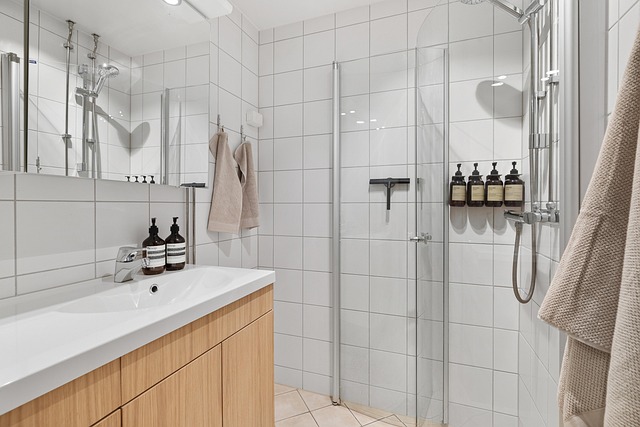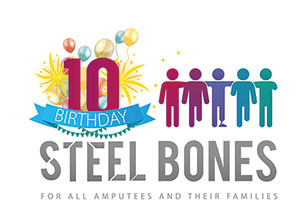Housing & Accessibility
Supporting you to feel safe, confident and independent at home

Making a Home Accessible
“How can I adapt my home after amputation?”
Start with an occupational therapist (OT) assessment through your local council or NHS. They’ll recommend essential adaptations based on your mobility, daily routines, and long-term needs.
“Will I need a stairlift, a wet room, or ramps?”
It depends on your individual situation. OTs may recommend:
- Stairlifts if your bedroom/bathroom is upstairs
- Wet rooms or level-access showers for easier washing
- Ramps or threshold strips if using a wheelchair or walking aid
“Can I get help with bathroom adaptations?”
Yes, you may qualify for support through your local authority, especially if recommended by an OT. You can also apply for a Disabled Facilities Grant (DFG) in England, Wales, or Northern Ireland.

What Modifications are Most Helpful?
“Are grab rails and non-slip flooring essential?”
They can make a big difference. Grab rails by toilets, beds, and stairs provide stability, while non-slip flooring in wet areas reduces fall risk.
“Do I need a walk-in shower or bath lift?”
Walk-in showers with a seat are safer for most amputees. If you prefer a bath, a bath lift may be an easier and less expensive alternative.
“What changes can help with energy levels?”
- Lowering kitchen worktops for seated use
- Organising items at reachable heights
- Installing perching stools in the kitchen or bathroom
All of these reduce strain and preserve energy.
“Can I make temporary changes while I recover?”
Yes. Temporary ramps, portable shower stools, handheld shower heads, and raised toilet seats are affordable and easy to install. These help you stay independent as your needs evolve.

Paying for Housing Adaptions
“Can I get a Disabled Facilities Grant?”
Yes, in England, Wales, and Northern Ireland, DFGs are available to help with major adaptations. They’re means-tested, but many people qualify for full or partial funding.
“Does the council help with ramps or wet rooms?”
Yes — local councils can fund or install adaptations recommended by an OT. Apply through your Adult Social Care team.
“What if I rent — can I still get adaptations?”
Yes. Tenants have the right to request reasonable adjustments. Landlords must have a valid reason to refuse, especially for safety-critical changes. Always seek permission in writing and involve your OT or social worker if needed.
“Are there charities or organisations that help fund adaptations?”
Yes. Organisations like:
- Turn2Us
- The ACT Foundation
- SSAFA (for veterans)
- Steel Bones can help with finding funding or sourcing equipment.

Emotional & Practical Concerns
“How do I make my home feel safe again?”
Start with small steps: declutter, improve lighting, install grab rails, and rearrange furniture for easier movement. Ask for a visit from an OT or peer support group to get practical ideas.
“I’m worried I’ll lose my independence — who can help?”
You’re not alone. Many amputees feel this way. Reach out to:
- Your local amputee support group
- Peer mentors
- Social prescribers via your GP
They can help you stay in control of decisions and regain confidence.
“What if I don’t feel confident using stairs or the bathroom?”
This is common. Ask your GP or OT for an assessment — they can recommend physical aids or training sessions with a physiotherapist or rehab team to rebuild confidence and ability.

Moving or Downsizing
“Should I move to a bungalow or ground-floor flat?”
If stairs are a concern, moving to a step-free home can increase your safety and independence — especially if you live alone.
“How do I find accessible housing in my area?”
Search through your local council’s housing register, estate agents, or portals like Homefinder UK. Some charities also maintain lists of accessible properties.
“Are there supported living schemes for amputees or disabled adults?”
Yes, though these vary by area. Ask your local council about supported housing schemes, extra-care facilities, or independent living units designed for disabled adults.

Rights & Legal Support
“What are my rights as a disabled tenant or homeowner?”
Under the Equality Act 2010, you have the right to reasonable adjustments at home to prevent discrimination.
“Can my landlord refuse to let me adapt the property?”
Private landlords must consider requests for reasonable adaptations and cannot unreasonably refuse changes that support your safety or independence.
“What if my housing no longer suits my mobility needs?”
You can ask for a housing needs assessment. Your local authority may offer a move, adaptations, or help finding accessible social housing.
Telephone
03333 606930
Address
Isleham Business Park, Hall Barn Road, Isleham
Cambs CB7 5QZ
hello@steelbone.co.uk
Register here to receive your
FREE Support Pack
If you need some urgent help or support,
please ring the team on 03333 606930
